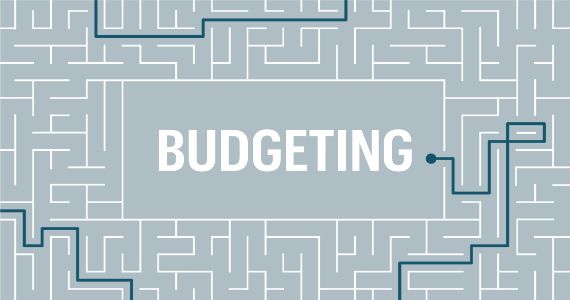5 Accounting Principles
According to the Department of Labor, in 2008 there were 2.1 million bookkeeping and accounting positions in the United States. Bookkeeping is not a career choice that requires extensive time spent gaining a college degree. Most bookkeepers have only a high school bookkeeping 101 diploma, although some employers prefer or require at least some college courses such as accounting or finance. Most of the education a bookkeeper receives comes in the form of on-the-job training while working with more experienced bookkeepers or accountants.
No matter the form or technology used, you choose the parameters of your bookkeeping system to meet your needs. So when considering a career as a bookkeeper, it is possible to be hired and receive on-the-job training with just a high school diploma and work using your basic math skills. However, establishing a working knowledge of accounting through formal coursework can serve a bookkeeper well in his or her job. Additionally, certain employers may require candidates to hold an associate or bachelor’s degree. Programs in business administration and accounting are available at both levels.
Accountant vs. Controller
In fact, many aspiring accountants work as bookkeepers to get a foot in the door while still in school. Additionally, bookkeepers who excel http://lopchongdinhlocphat.com/pilot-accounts/ at their jobs are sometimes promoted to accounting positions, even if they lack the level of education the company typically prefers.
Initial Bookkeeping Terms Related to the Accounting Equation
Companies often display bookkeeping entries in forms called financial statements. The statements focus on specific aspects of a company’s financial activities, such as cash flow, assets or earned revenue and connected expenses. Some small businesses use paper ledgers and journals to record financial transactions, while others use computer-based systems or a combination of both. Bookkeeping and accounting software simplify bookkeeping, making it possible for small businesses with little staff or resources to build and maintain comprehensive bookkeeping systems.

Students in associate degree programs may take courses in business mathematics, keyboarding, economics, payroll accounting, tax procedures, and business law. A bookkeeper is someone who works for a company (either as an employee or statement of retained earnings example a contractor) to keep the financial books. Most bookkeepers these days use accounting software like QuickBooks for this task. That said, landing an accounting job requires, in most cases, more education than becoming a bookkeeper.
The following analysis compares the education requirements, skills needed, typical starting salaries and job outlooks for accounting and bookkeeping. The distinctions between accounting and bookkeeping are subtle yet important to understand when considering a career in either field.
How to do accounting for a small business
How can I do my own bookkeeping?
Bookkeeping is the recording of financial transactions. Bookkeeping systems range from the most basic, such as the check register used to record checks and deposits, to the complex systems of ledgers and journals used by large corporations.
The chart of accounts usually includes balance sheet accounts and income statement accounts, according to the AccountingCoach.com. Balance sheet accounts are assets, liabilities, and stockholder or owner equity.
Income statement accounts are operating and nonoperating revenues, expenses, gains and losses. Your company might require accounts for specific customers, departments or products. An accountant can help your company determine which accounts are needed and create your chart bookkeeping of accounts. Along with becoming certified, those looking at working as a bookkeeper should become familiar with desktop computer applications, especially accounting software. An increasingly large percentage of business transactions and accounting tasks are computerized.
- In small businesses, bookkeepers are responsible for the daily financial transactions of the company.
- They record the daily receipts into financial software, like QuickBooks, and manage the banking transactions, accounts payable and accounts receivable.
- In larger companies, these roles may fall on multiple clerks or accountants, but smaller companies may employ a full-time bookkeeper to handle all these functions.
What are the basics of bookkeeping?
The Basics — Understanding Assets, Liabilities, and Equity Before you set up your bookkeeping system, you have to understand the firm’s basic accounts — assets, liabilities, and equity. Assets are those things the company owns such as its inventory and accounts receivables.
In small businesses, bookkeepers are responsible for the daily financial transactions of the company. They record the daily receipts into financial software, like QuickBooks, and manage the banking transactions, accounts payable and accounts receivable. In larger companies, these roles may fall on multiple clerks or accountants, but smaller companies may employ a full-time bookkeeper to handle all these functions. Bookkeeping careers do not normally require advanced degrees; however, some individuals may choose to complete college accounting courses to remain competitive.
Find high-quality accounting partners
Many hold advanced degrees, such as MBAs with accounting or finance concentrations, or they have Master of Accountancy degrees. To sit for the Certified Public Accountant, or CPA exam, which is a common goal of many accountants, you must have a minimum of 150 postsecondary education hours. This is a bachelor’s degree plus 30 hours of graduate work; most CPA candidates go ahead and finish their master’s degrees. Neither accounting nor bookkeeping imposes hard-and-fast educational requirements. You can find plenty of bookkeepers and even some accountants who have no further education than a high school diploma.
Software allows for automatic calculation, categorization, adjustments and the retrieval of information in different forms. Businesses can also customize bookkeeping software with tax rates and other information that affects financial transactions. A small business owner might perform the company’s bookkeeping, or the work might be performed by a staff person. Some companies hire professional accounting services to handle the bookkeeping.
The two careers are similar and accountants and bookkeepers often work side by side. However, important differences exist in the nature of work conducted in each career and what is required to be successful.

Bookkeepers record the day-to-day financial transactions of a business. There are a lot of minutiae involved, and keen attention to detail is paramount. At specified intervals, they review and analyze the financial information recorded by bookkeepers and use it to conduct audits, generate financial statements and forecast future business needs. Bookkeeping is a component of accounting, the discipline that interprets and analyzes the record of financial transactions to generate reports. Financial transaction types include sales, earned revenue, payment of taxes, earned interest, payroll and other operational expenses, loans and investments.

You create a more comprehensive bookkeeping system when you include accounts for each area of financial transactions. The accounts group financial transactions that are categorized or classified similarly. Your chart of accounts lists all of the accounts, by unique name and number, in which your company records financial transactions.
Establish sales tax procedures
Two Roads is a bookkeeping company who is hiring for Remote Bookkeeping positions. Bookkeepers will be handling bank reconciliations, production of monthly financials, and management of requests in a timely manner. To be considered for the role, you should have four years or more of prepaid expenses bookkeeping or accounting experience. Two Road bookkeepers must be available during regular business hours and have 30 hours or more each week available. You can become a bookkeeper right out of high school if you prove you are good with numbers and have strong attention to detail.

 +7 (918) 4-333-108
+7 (918) 4-333-108